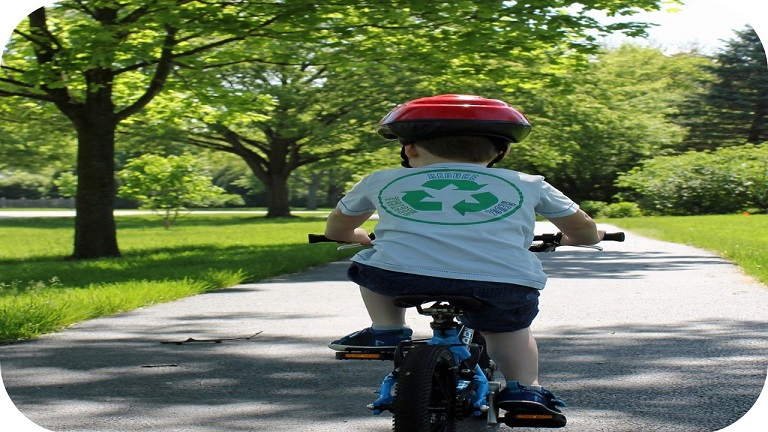Use and potential of the LIFE Programme for Environmental Education in formal, not formal and informal education, and especially in Primary Education

Downloads
- PDF (Español (España)) 1693
- EPUB (Español (España)) 68
- VISOR (Español (España))
- MÓVIL (Español (España))
DOI
https://doi.org/10.25267/Rev_Eureka_ensen_divulg_cienc.2020.v17.i3.3501Info
Abstract
The LIFE programme is the European Union instrument that, for more than two decades, has been funding environmental and climate action projects. These projects also entail an important work of dissemination and scientific outreach in the territories where they are developed, including those actions especially aimed at children. This document aims to analyze the potential of LIFE projects as a teaching resource in Environmental Education, as well as its current implementation and knowledge in the Primary Education teaching field. The analysis scope was focused on Asturias and the last decade, carrying out case studies of projects, a survey among active teachers and an analysis of the impact on the press, in relation to the actions on school-age population. The results reflect, on the one hand, an important didactic potential, although there is also a shortage of proposals dedicated to formal education, a lack of didactic adequacy and a lack of knowledge of the program by active teachers. This situation requires more reciprocal work with current and future teachers, both to create more and better materials and proposals, and to place the LIFE Programme in the condition of didactic resources source that corresponds to it.
Keywords
Downloads
Supporting Agencies
How to Cite
License
Copyright (c) 2020 Los/as autores/as pueden mantener el copyright, concediendo a la revista el derecho de primera publicación. Alternativamente, las/os autoras/es puede transferir el copyright a la revista, la cual permitirá a las/os autoras/es el uso no-comercial del trabajo, incluyendo el derecho a colocarlo en un archivo de acceso libre. Además, se puede consultar Creative Commons sobre licencias de copyright flexibles.

This work is licensed under a Creative Commons Attribution-NonCommercial 4.0 International License.
Require authors to agree to Copyright Notice as part of the submission process. This allow the / o authors / is non-commercial use of the work, including the right to place it in an open access archive. In addition, Creative Commons is available on flexible copyright licenses (Creative Commons).

Reconocimiento-NoComercial
CC BY-NC
References
Ceballos G., Ehrlich P.R., Barnosky A.D., García A., Pringle R.M., Palmer, T.M. (2015) Accelerated modern human–induced species losses: Entering the sixth mass extinction. Science advances 1(5), e1400253 https://doi.org/10.1126/sciadv.1400253
Corraliza J.A., Collado S. (2019) Conciencia ecológica y experiencia ambiental en la infancia. Papeles del Psicólogo 40(3), 190-196. https://doi.org/10.23923/pap.psicol2019.2896
Cutter-Mackenzie A., Edwards S., Moore D., Boyd W. (2014) Young children's play and environmental education in early childhood education. Cham: Springer Science & Business Media. https://doi.org/10.1007/978-3-319-03740-0
Gil Pérez D., Vilches A., Oliva J.M. (2005) Década de la educación para el desarrollo sostenible. Algunas ideas para elaborar una estrategia global. Revista Eureka sobre enseñanza y divulgación de las Ciencias 2, 91-100.
Hayward B. (2012). Children, citizenship and environment: Nurturing a democratic imagination in a changing world. Londres: Routledge.
Jarman R., McClune B. (2010) El desarrollo del alfabetismo científico. El uso de los media en el aula. Madrid: Ediciones Morata S. L.
Jiménez-Fontana R., García-González E. (2017) Visibilidad de la Educación Ambiental y la Educación para la Sostenibilidad en las publicaciones españolas sobre educación científica. Revista Eureka sobre Enseñanza y
Divulgación de las Ciencias 14 (1), 271-285. http://hdl.handle.net/10498/18861
López-Rodríguez C.I., García-Aragón A. (2014) Recursos multimodales para traducir y divulgar contenidos medioambientales en Europa. Trans-kom, 7(2), 222-243.
Kesebir S., Kesebir P. (2017) A growing disconnection from nature is evident in cultural products. Perspectives on Psychological Science 12(2), 258-269. https://doi.org/10.1177/1745691616662473
Perales F.J. (2010) Retos y dificultades para una educación ambiental informal. Alambique 64, 23-35.
Pyle R.M. (2003) Nature matrix: Reconnecting people and nature. Oryx 37, 206-214 https://doi.org/10.1017/S0030605303000383
Ripple W.J., Wolf C., Newsome T.M., Galetti M., Alamgir M., Crist E., Mahmoud M.I., Laurance W.F., 15,364 scientist signatories from 184 countries (2017) World scientists’ warning to humanity: a second notice. BioScience 67(12), 1026-1028. https://doi.org/10.1093/biosci/bix125
Rodríguez-Menéndez M.D., Fernández-García C.M. (2005) Educación formal, no formal e informal en el Espacio Europeo: nuevas exigencias para los procesos de formación en educación. Aula abierta 32, 45-56.
Ruiz-Heredia, A. (2008) Educación, Medio Ambiente y Didáctica del Entorno: Teoría y Prácticas. Madrid: Popular.
Sampedro-Ortega Y., García-Fernández J. (2010) Un viaje por la educación ambiental en la escuela. Madrid: Instituto de Formación del Profesorado, Investigación e Innovación Educativa (IFIIE). Madrid: Ministerio de Educación.
Sauvé L. (2017) Education as life. En: B. Jickling & S. Sterling (eds.), Post-Sustainability and Environmental Education: Remaking Education for the Future (pp. 111-124). Cham: Palgrave Macmillan (Springer).
Soto-Fernández J.R., Espido-Bello, X.E. (1999) La educación formal, no formal e informal y la función docente. Innovación educativa 9, 311–323.
Varela-Losada M., Vega-Marcote P., Pérez-Rodríguez U., Álvarez-Lires M. (2016) Going to action? A literature review on educational proposals in formal Environmental Education. Environmental Education Research 22(3), 390-421. https://doi.org/10.1080/13504622.2015.1101751
Vicente-Colomer M.J., Martínez-Sánchez J.J., Naveira-Ruíz D., Segura-Carreras F.J., Conesa-Gallego E., Franco-Leehemus J.A., Bañón Arias S., Aguado López M., Martinez Díaz E., Ochoa Rego J., Esteva Pascual J., Fernández
Hernández J.A., Martínez Llopez J.A., Álvarez Rogel J., Conesa-Alcaraz, H. (2013) Cuidemos del Garbancillo de Tallante: guía didáctica sobre la conservación Astragalus nitidiflorus en su hábitat potencial en la Región de Murcia. Cartagena: Universidad Politécnica de Cartagena. http://hdl.handle.net/10317/3881
Vilches A., Gil-Pérez, D. (2016) La transición a la Sostenibilidad como objetivo urgente para la superación de la crisis sistémica actual. Revista Eureka sobre Enseñanza y Divulgación de las Ciencias 13 (2), 395-407. http://hdl.handle.net/10498/18296
Vilches A., Macías O., Gil Pérez D. (2009) Década de la Educación para la Sostenibilidad. Temas de acción clave. Madrid: Centro de Altos Estudios Universitarios de la OEI.
Wells N.M., Lekies K.S. (2006) Nature and the life course: Pathways from childhood nature experiences to adult environmentalism. Children Youth and Environments 16(1), 1-24.






